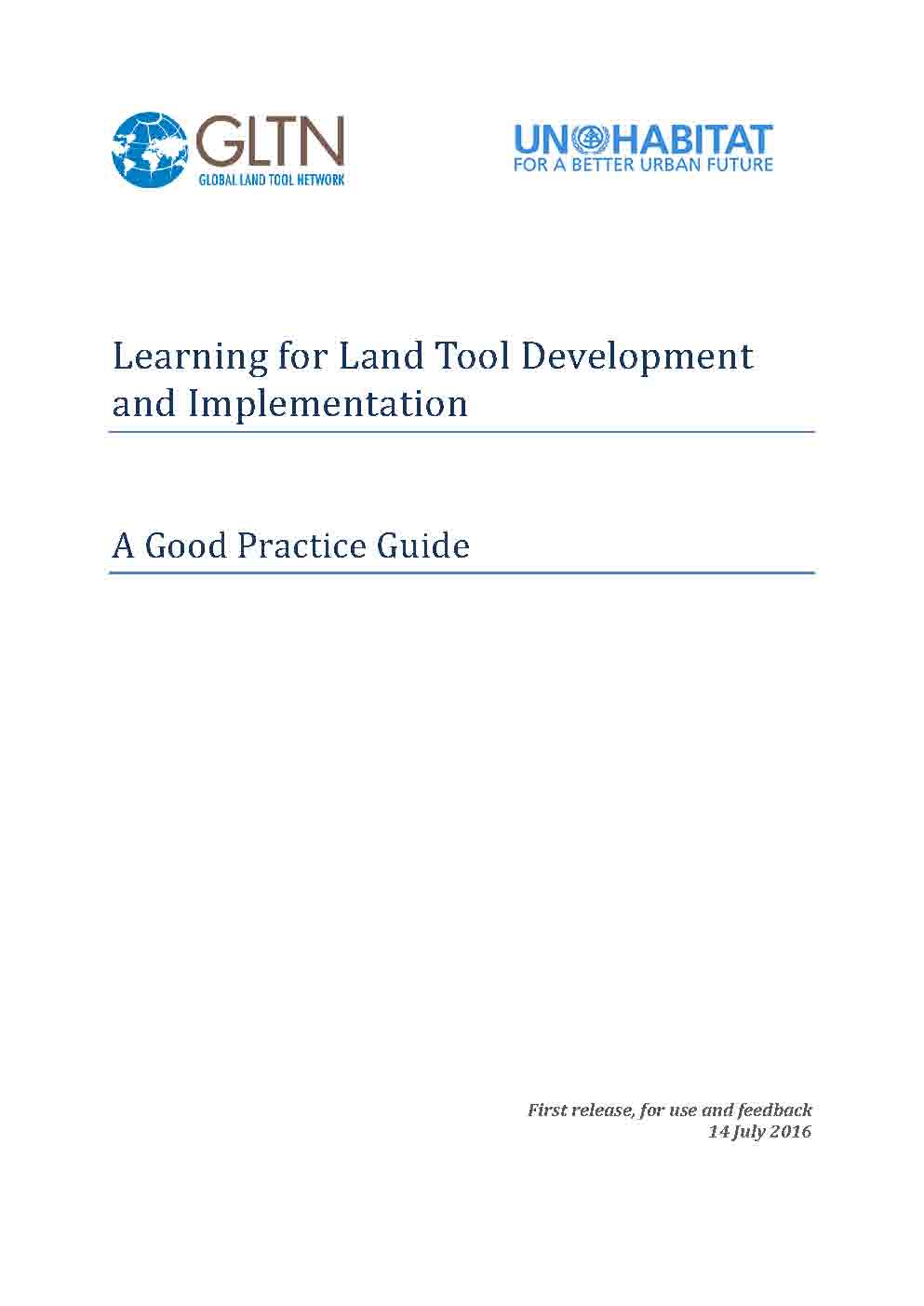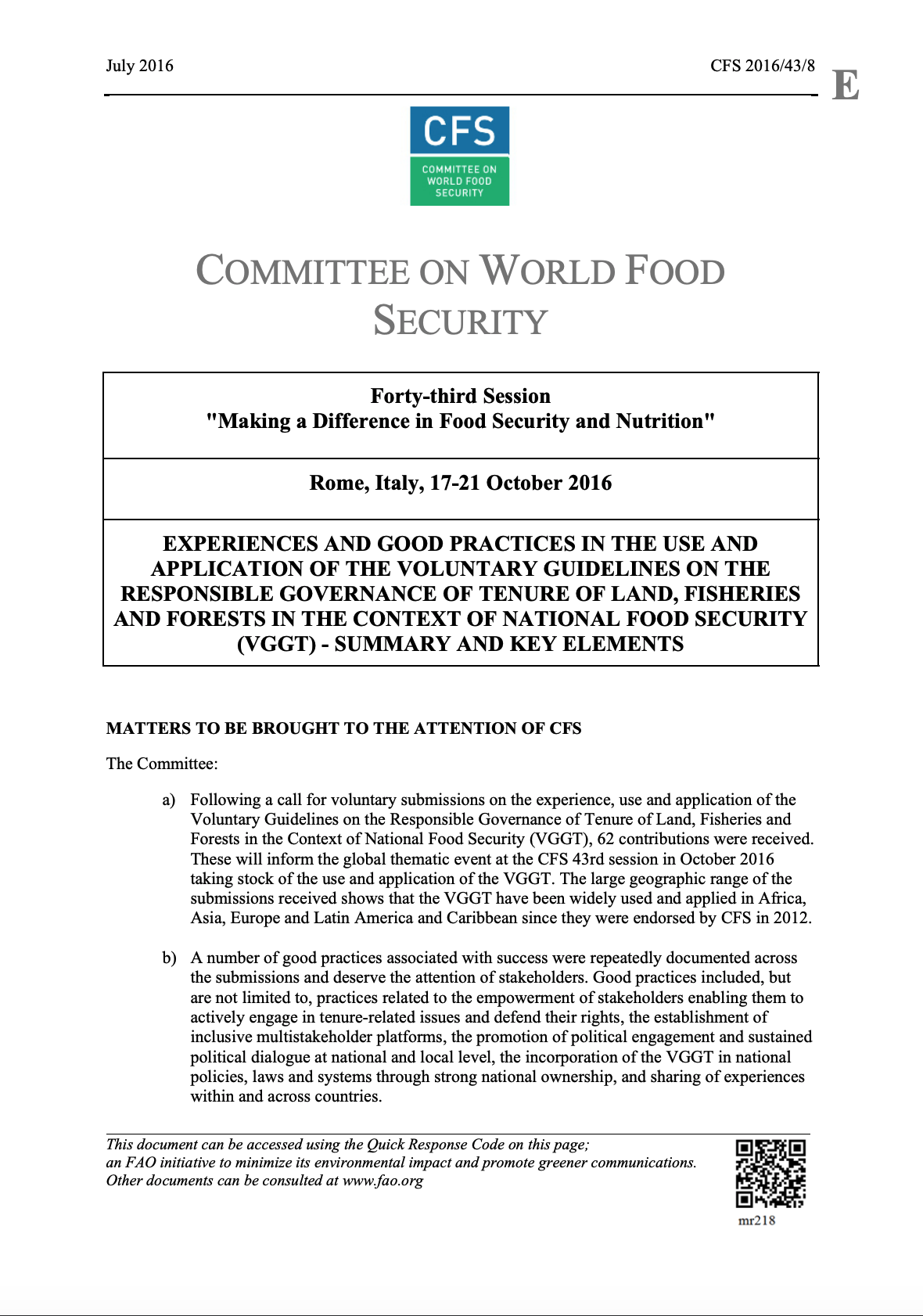Course: Safeguarding land tenure rights in the context of agricultural investments
This course aims to provide guidance to government authorities engaged in investment promotion, approval, and monitoring activities at all stages of the agricultural land-based investment cycle. Based on the Voluntary Guidelines on the Responsible Governance of Tenure for Land, Fisheries and Forests, the course provides technical guidance on how to safeguard tenure rights, human rights, food security and the environment in the context of such investments.






